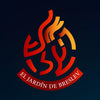
Parasha teruma
"Speak to the Children of Israel and tell them to take an offering for Me" (Shemot-Exodus 25:2)
We wonder why the Torah uses the word veikju (which
take) and not twenty-one (give)?
The sages explain to us that what a person truly has materially is what he gives for tzedakah (charity).
While someone may have a lot of money, it is not considered to belong to them, but rather it has been "deposited" in their hands temporarily.
Only what he gives for tzedakah belongs to him!, just as our Sages said regarding King Munbaz.
Therefore it turns out that in fact "to give is to take for oneself", and that the choice of the expression in the verse "let them take" is correct.
In the same way we can explain the verse concerning Abraham Abinu (our Patriarch), who upon receiving guests said to them: “I will take a loaf of bread for you to nourish your heart” (Bereshit 18:5). Apparently it would have been more correct to say, “I will give you a loaf of bread,” but Abraham Abinu knew that everything he gave to his guests actually brought merit to himself!, as the Bet HaLevi explained.
The Admor of Bluzhov, who told Rabbi Shlomo Lorentz:
“When I arrived in the United States, I was a Holocaust survivor who had nothing. The day after I arrived, the Admor of Ozharov, Rabbi Moshe Yechiel Epshtein, called me and invited me to live in his home, saying, 'I did not have the merit of experiencing the seven levels of hell of the Holocaust like you. Therefore, I am leaving my home and handing over the shtibel (a place of prayer, similar to a synagogue) and my Hasidim (faithful students) to you until you can be honorably settled.'
When the Admor of Ozharov made aliyah ('ascended to Israel'; he came to live in Israel), he brought enough money with him to buy a spacious house, as is fitting for an Admor. But upon learning that there was an orphan girl (who was also a close relative of his) who was about to get married and needed money, he gave her everything he had brought for himself and rented an apartment.
We can see how these great righteous people knew this teaching very well; truly, only what they gave with a heart full of love was what they "took for themselves."
For when one gives charity or an offering, one may come to perceive the pleasure of the Blessed Creator or His glory.
This is alluded to in the word TeRÚMa (offering) which is an acronym for the final letters of the words: "IajzoT benoaM IHVH ulevakeR beHijalO" Which translates to: "To contemplate the Creator's pleasure and enter His Sanctuary"
It is written in this Parasha:
"Speak to the children of Israel so that they may take for Me an offering"You shall take My offering from every man who has a willing heart" (Exodus 25:2)
Rabbi Nachman explains that in order for a person to be charitable, he or she must open his or her heart. Once his or her heart is open to giving to others, then he or she will also be able to receive blessings of abundance from the higher heart of God. 'Noam HaElion' (Divine Pleasure)
When one opens one's heart to charity and kindness it allows the "open" heart to receive even greater blessings from above. "The Higher Heart"
(Dedicated to the healing of all the sick in Am Israel and the entire world, and to the success of those who dedicate themselves to spreading Emuna in the Blessed Creator)
The Breslev Garden recommends:
